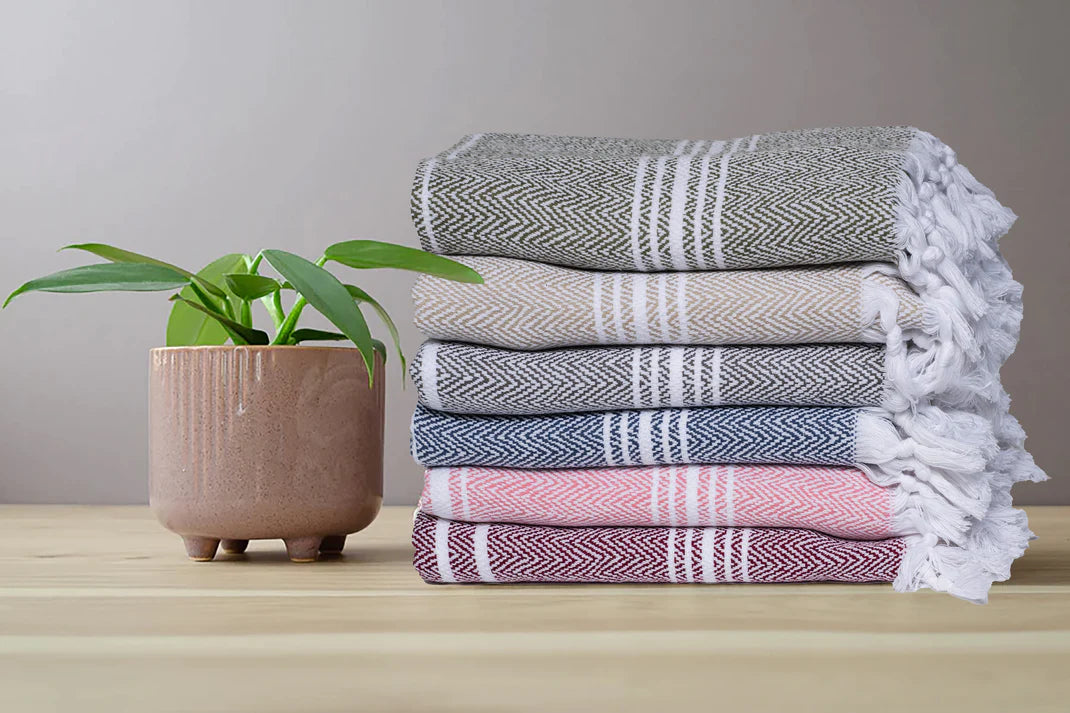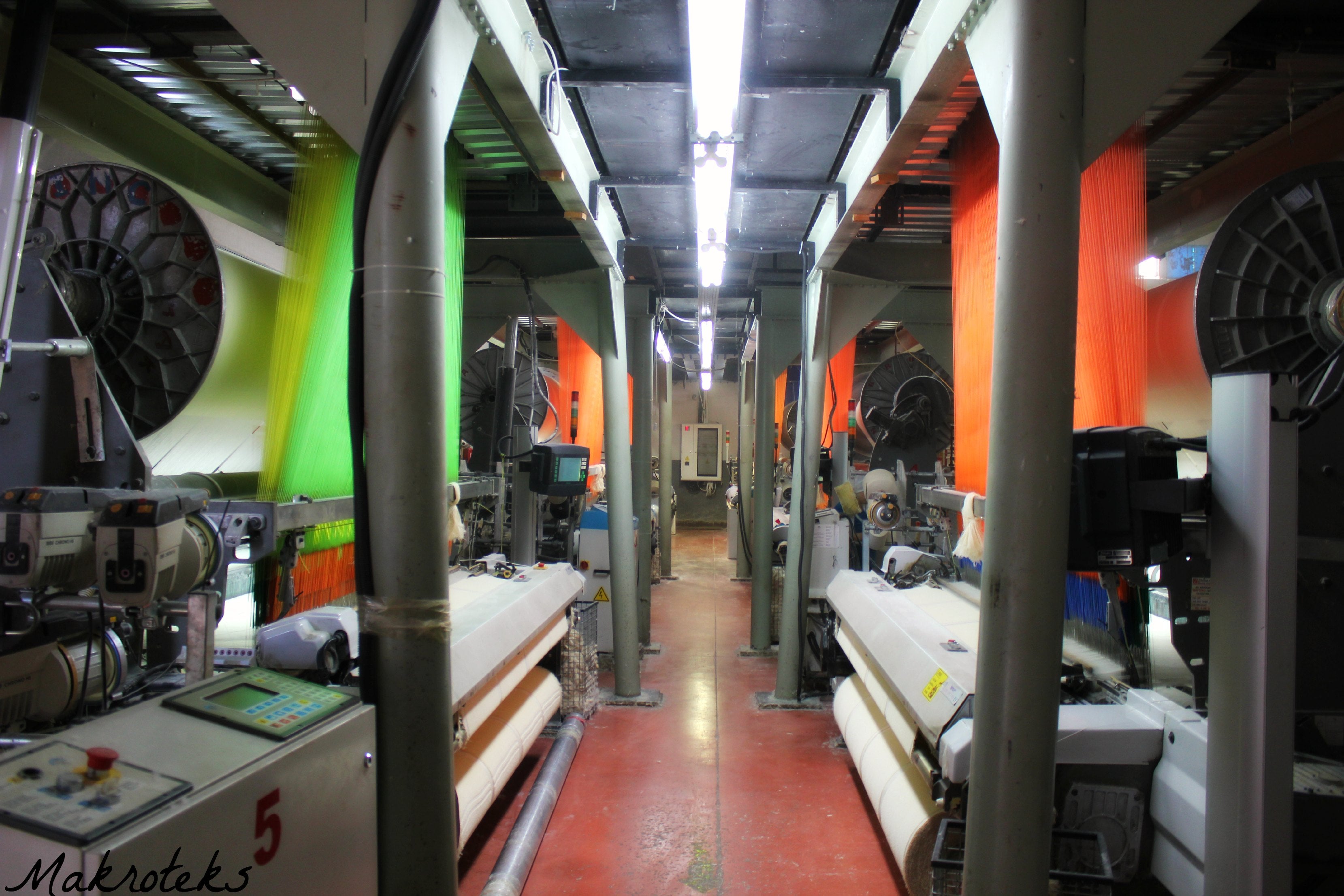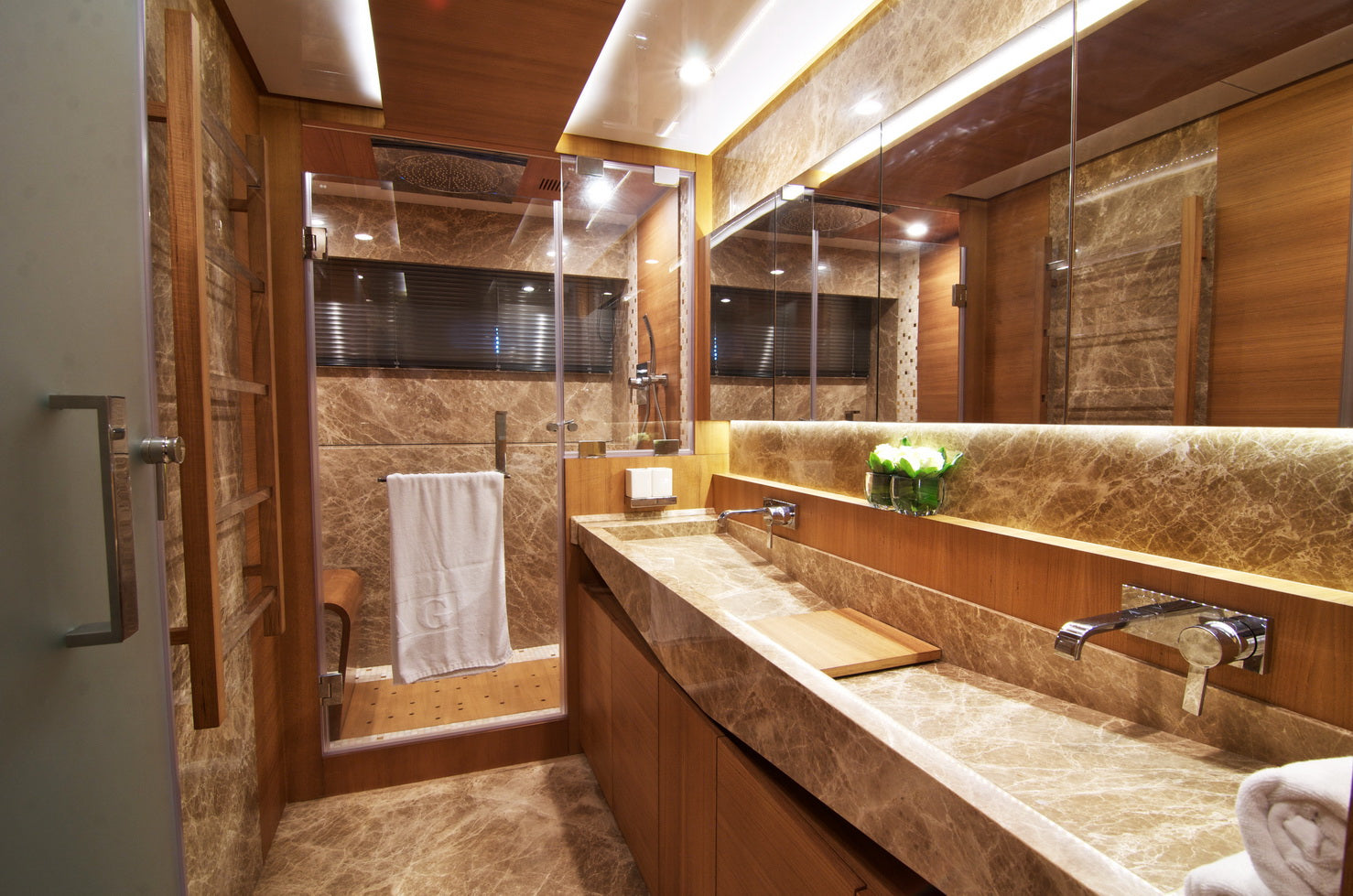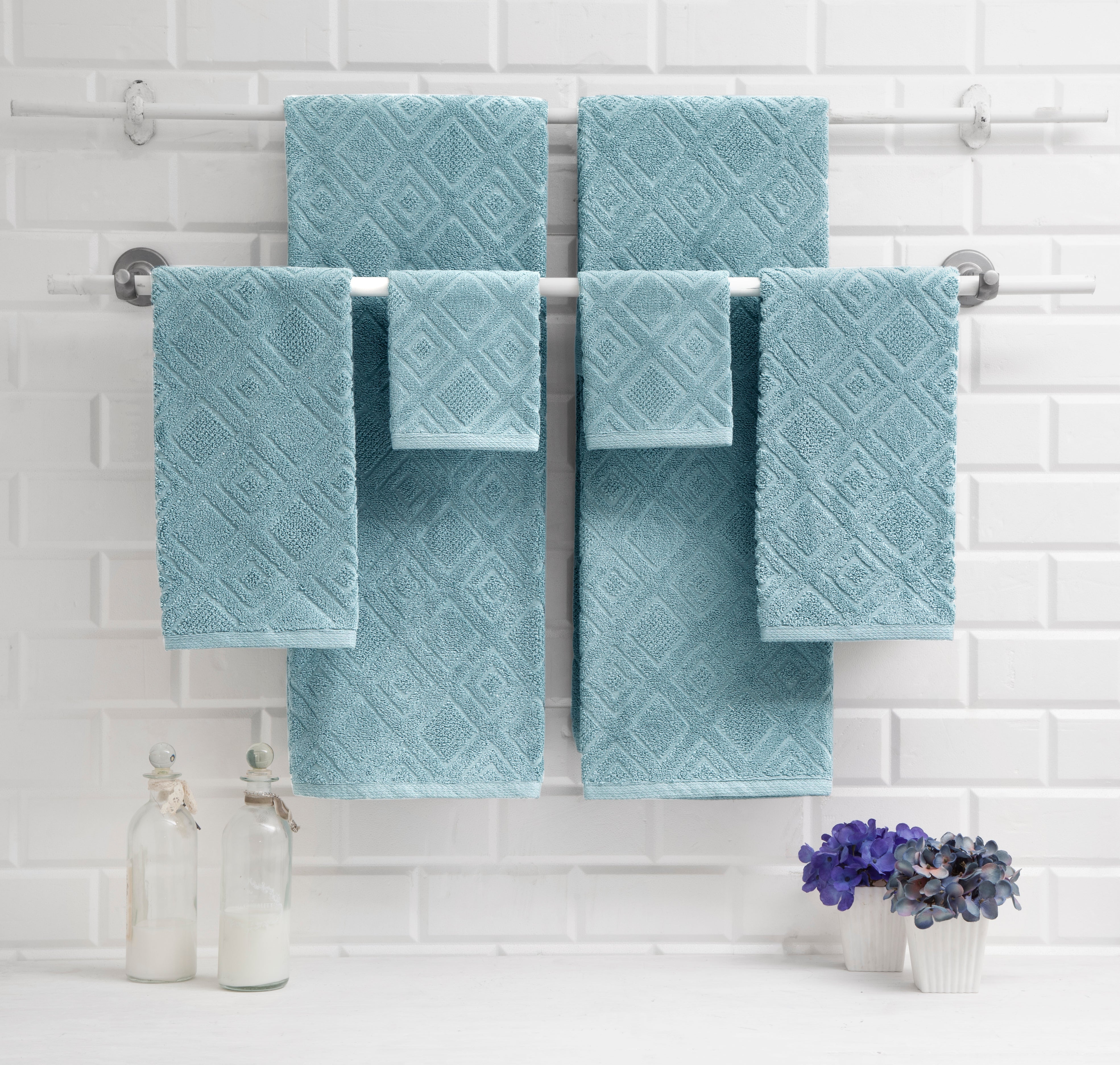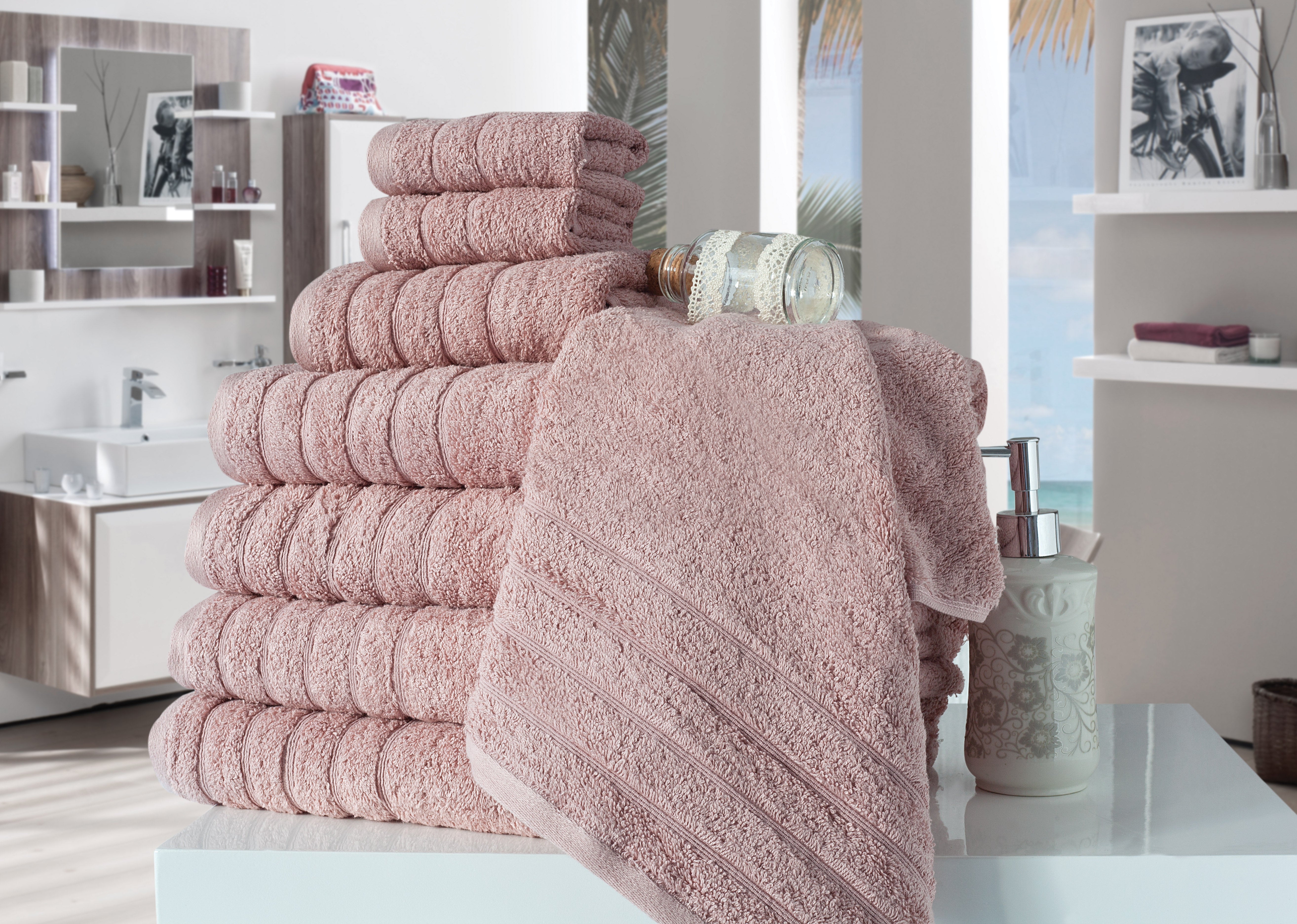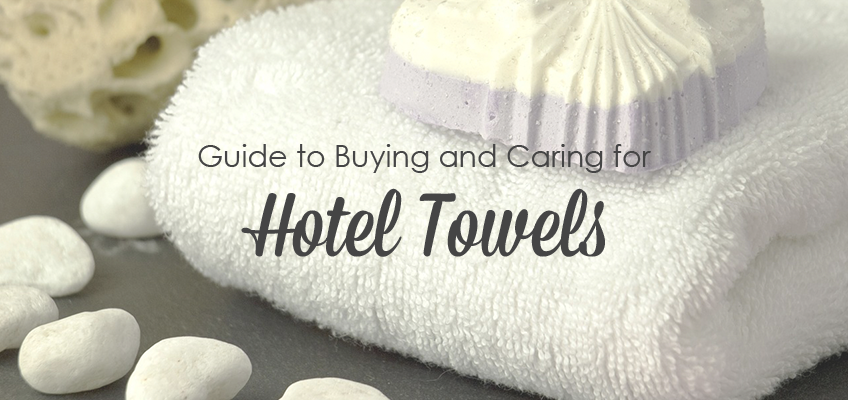
Guide to Buying and Caring for Hotel Towels

A hotel’s towels are an important asset. When choosing which kinds of towels to offer at your hotel, motel or bed and breakfast, it’s important to keep in mind the costs associated with wear and tear as well as theft.
According to an estimate provided by the American Hotel & Lodging Association, the only national association that represents all segments considered part of the U.S. lodging industry, theft costs hotels approximately $100 million annually. Travelocity recently polled hotel guests in the United States and Canada and reported that 85 percent of respondents admitted to taking toiletries or towels from their hotel rooms.
Many hotels build the cost of people taking items such as pens and stationery into the amount they charge for an overnight stay, typically at a rate of $3.00 per guest per night. In some instances, items with a property’s logo on them can essentially pay for themselves by acting as marketing tools when former guests display them. Every time you give someone a note on a paper taken from a pad that has a hotel’s logo on its pages, for example, you’re promoting that property.
In other instances, individual things cost so little money that it would cost a hotel more to track its inventory of the items than it would to simply let guests leave with them. Costing as little as $0.20 per bottle, the mini bottles of shampoo and conditioner that are typically readily available in a hotel room’s bathroom are good examples of such items.
In still other instances, guests take things that are more expensive and more noticeable when it comes to a property’s bottom line. Hotel towels are one of these items. In fact, towels make it into travelers’ suitcases so often that Thrillist.com and myvouchercodes.co.uk report they’re the number one item stolen from hotels.

According to William Serbin, executive vice president of Linen Technology Tracking, a company that provides chips to hotels that enable the properties to track their towels, linen and robes, hotels lose approximately 10 to 20 percent of their linens per month, mostly due to regular wear and tear. With around 2,000 hotels currently using his company’s devices to track when a piece of linen leaves their building, Serbin further estimates that 2 percent of the linens that are unaccounted for at the end of a month have been stolen by hotel guests.
Since wear and tear seems to be a bigger culprit than theft when it comes to towel loss, perhaps the best way for you to reduce the number of towels your property loses every month is to buy higher-quality, more durable guest towels. Changing the way you care for your hotel’s towels may also help them last longer, helping you control what can spiral into an expensive line item. Another way to keep your costs low is to buy wholesale hotel towels from Classic Turkish Towels.

Classic Turkish Towels has a wide selection of premium white towels and lasting color bath towels for you to choose from. Whether you need bath sheets, bath towels, washcloths, hand towels, fingertip towels, bathmats or a combination of them, we can help you find exactly what you need at the best price possible. When it comes to controlling costs, we can help in another way, too. We can lower our prices in accordance with how much you order, meaning the more you buy from us in a single order, the more you can save.
How to Choose Long-Lasting Towels
If you work for a national or international hotel brand, you may be required to order a certain type of towel to maintain the integrity and consistency of the brand overall. If you work for an independent hotel, motel or bed and breakfast, on the other hand, you might enjoy the liberty of picking any kind of towel that you think will appeal to your guests the most.
Choosing long-lasting towels involves many factors, including how much you can afford to spend. When budgeting for towels, remember to leave an allowance for attrition since you’ll have to replace towels for a variety of reasons such as wear and tear and theft. Once you’ve identified how much you can spend to buy lasting color bath towels and premium white ones, it’s time for you to determine the towels you want for your establishment.
One of the things you should consider when you’re choosing towels is the type of material you want them to be made from. If you’re eco-conscious, you may want to consider purchasing towels made out of organic cotton or bamboo. Bamboo is easily sustainable, and it usually grows well without needing to be treated with pesticides. Similar to hemp towels, bamboo towels are naturally more resistant to mold and mildew in wet or humid environments compared to towels made from other materials. While bamboo towels may feel thinner than their cotton counterparts, they have the advantage of being up to four times more absorbent when compared to cotton towels.
Additional materials that towels are often made from include the following:
- Turkish Cotton: Turkish cotton is used to produce towels known for comfort and durability. They are also known for being absorbent and luxurious.
- Supima Cotton: “Supima” is the trademarked term used to refer to pima cotton, which is typically grown in the southwestern United States. Since pima cotton is grown from the same plant as Egyptian cotton, it has similar fibers. Those long fibers are what give towels made from this type of cotton similar characteristics to towels made from Egyptian cotton.
- MicroCotton: MicroCotton is produced by India. This material is extremely absorbent and feels similar to suede.
- Modal: Modal towels are made from the cellulose of beech trees. They are more absorbent than cotton towels and are resistant to fading.
- Microfiber: Microfiber towels are made from manmade fibers. They are generally thinner than cotton towels, but they are still highly absorbent and comparatively lightweight.

Whether you’re going to buy wholesale hotel towels or you’re going to shop at a local boutique featuring hand-crafted towels, you should consider a few other things before you purchase a single towel or make a bulk purchase for your hotel. One of the most important things you should think about is how long it’s going to take to dry the towels you buy. Towels that take less time to dry will help you keep your energy costs lower than towels that take longer to dry, but they may not offer the soft feel and absorbency your guests have come to expect.
Factors that impact how long it takes for a towel to dry include:
- Pile: Pile refers to a towel’s loops. In general, towels are either single or double loop. While both single and double loop towels are absorbent, single loop towels don’t take as long to dry as double loop towels do. Compared to single loop towels, double loop towels are denser and have a more luxurious feel. If a towel doesn’t have loops, it’s going to have sheared fibers that almost look like grass on the surface of the towel. Towels with cut fibers are generally softer than towels with loops, but they’re normally not as absorbent.
- GSM: GSM stands for “grams per square meter,” which is a measure of a towel’s density. In general, the higher a towel’s GSM is, the more absorbent and plush the towel will be. Of course, the denser a towel is, the longer it will take to dry. Many hotels use bath towels made from Turkish cotton that have a GSM of 600 or higher.
How a towel is made can impact how long it lasts, so it’s necessary for you to examine the construction of the towels you’re going to buy. Towels that are double-turned with double-stitched edges aren’t as likely to fray as towels with woven edges are. This means double-turned and double-stitched towels are likely to last longer than towels with woven edges.
You should also look at the weave of the towels you’re thinking of purchasing. Towels are made from ring-spun, combed or twisted materials. Cotton towels made from ring-spun fibers are typically the softest and most durable because the yarn used to make them is stronger and smoother than the yarn used in alternative weaving methods.
How to Care for Your Hotel Towels
It doesn’t matter if you buy quality white towels, lasting color bath towels or a combination of the two if your staff doesn’t know how to care for them properly. While you can’t do much to prevent a determined guest from taking a towel or two home, you can train your staff to prolong the life of your property’s towels by teaching them how to care for them appropriately.
When you’re teaching your employees how to care for your towels, remember to discuss the following tips:
- Wash Towels Before First Use: It’s not uncommon for manufacturers to coat new towels with a fabric softener to make them look fluffier on shelves and in catalogue pictures. Unfortunately, this can negatively impact a towel’s ability to absorb water. As a result, it’s generally a good idea for your staff to wash new towels before they are made available to guests. It’s also wise for your staff to avoid using fabric softener in subsequent washes and to make sure the detergent they use doesn’t have a built-in fabric softener. If you buy lasting color bath towels, the first wash also provides an opportunity to set their colors. Simply add some white vinegar to your load of colored towels to help set their colors and prevent them from running.
- Wash With Like Colors: Because colors sometimes run despite your best efforts to prevent them from doing so, your staff should wash towels that have similar colors together. Dark blue towels should be laundered with other dark blue towels, and yellow towels should be cleaned with yellow towels, for example. If you wash both shades together instead of keeping them separate, you’d risk having your lighter colored towels end up with blue splotches or streaks if the blue towels’ colors ran.
- Use the Right Amount of Detergent: Instruct your staff to use the right amount of detergent for the load they’re washing. Using excess detergent is not only wasteful, but it can also result in your towels feeling stiff or scratchy if they’re not thoroughly rinsed. Since towels will absorb excess suds, the use of too much detergent can also cause towels to have a buildup of bacteria and mold if the towels are not detergent-free at the end of the rinse cycle.
- Wash & Dry Towels With Towels Only: Different fabrics are usually made with fibers of varying lengths. When short fibers rub against longer fibers, the friction causes pills to appear in the fabric made from the longer fibers. To avoid damaging your towels, wash them with other towels made from the same material exclusively. Even if your property’s cleaning towels are made from the same material and are the same color as your guest towels, avoid washing them together. The chemicals your staff uses to clean your hotel are absorbed by your cleaning towels, and they can damage your guest towels if you wash both types of towels together.

- Shake Towels: It may seem premature, but you should shake out your towels after you take them out of the washer and before you put them in the dryer. Doing so will shake out the towels’ loops, which will increase their absorbency and keep the towels fluffy.
- Cut Loose Threads: Ask your staff members to look for loose threads as they launder your property’s towels. If they notice a towel has a loose thread, instruct them to cut it off to prevent it from causing a pull in the towel. If the thread has already caused a visible pull, take the towel out of rotation and dedicate it to another purpose such as cleaning.
- Dry With Low Heat: Using a low temperature to dry your towels can help prolong their lifespan. High heat can damage or shrink a towel’s fibers, compromising its absorbency and thus its long-term usefulness.
- Make Sure Towels Are Dry: Your employees should make sure your property’s towels are completely dry before they remove them from the dryer. Even slightly damp towels can develop smelly mildew quickly.
- Rotate Towels: You should rotate the towels that you make available to your guests. If you have seven sets of towels per room, you should consider using one set for each day of the week, for instance. By using each set of towels less often, they won’t have to be washed as much. This reduced wear and tear will help your towels last longer.

